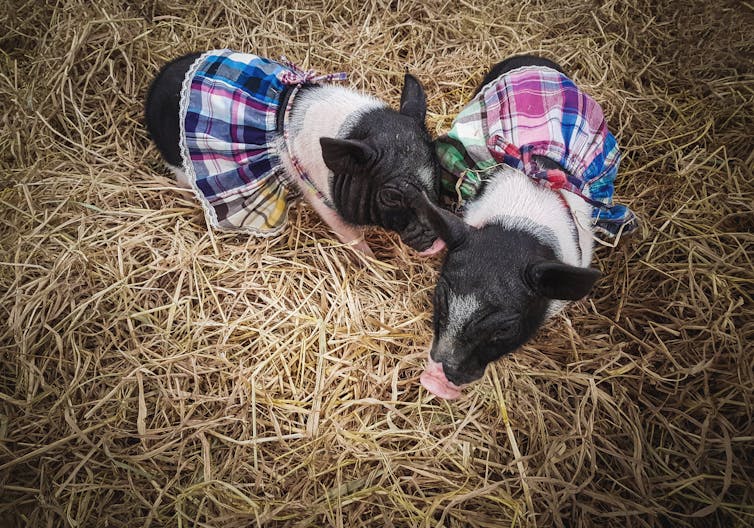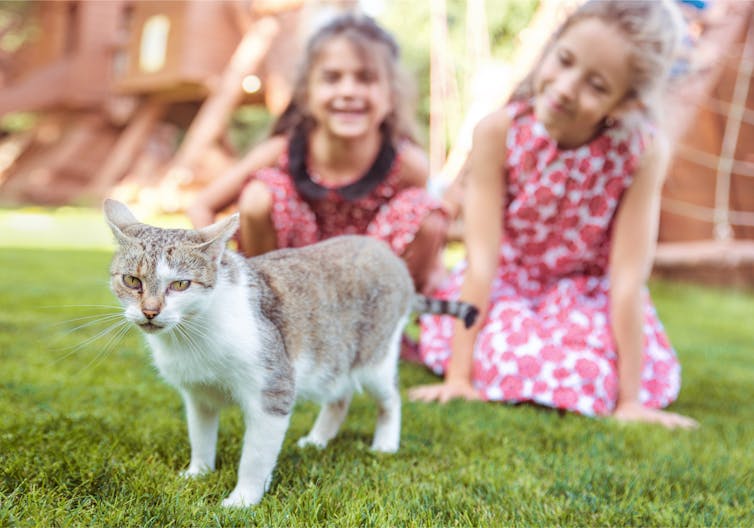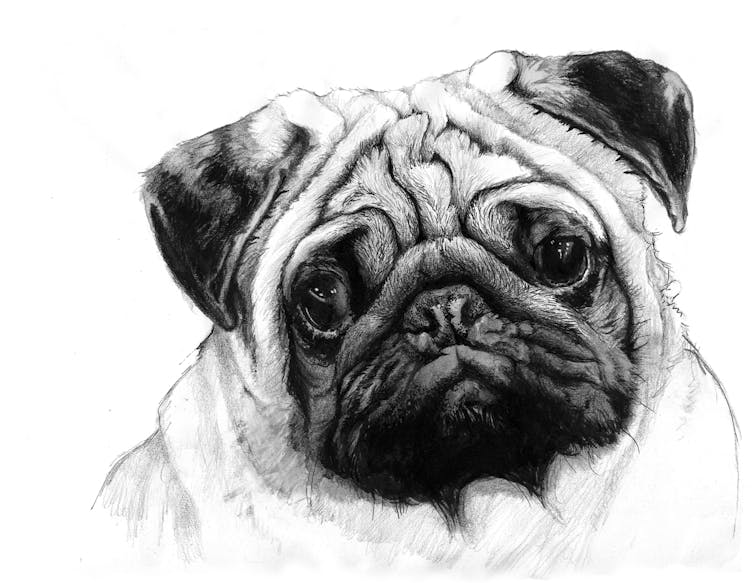Is It Weird That I Don't Like Animals
The contempo popularity of "designer" dogs, cats, micro-pigs and other pets may seem to suggest that pet keeping is no more than than a fad. Indeed, it is often assumed that pets are a Western arrayal, a weird relic of the working animals kept past communities of the past.
Most half of the households in Britain alone include some kind of pet; roughly 10m of those are dogs while cats brand upwards some other 10m. Pets cost time and coin, and present bring little in the way of fabric benefits. But during the 2008 financial crisis, spending on pets remained almost unaffected, which suggests that for about owners pets are not a luxury but an integral and securely loved part of the family.
Some people are into pets, all the same, while others just aren't interested. Why is this the case? It is highly probable that our desire for the company of animals actually goes back tens of thousands of years and has played an important part in our evolution. If so, then genetics might assist explain why a love of animals is something some people just don't go.

The health question
In recent times, much attention has been devoted to the notion that keeping a canis familiaris (or perchance a cat) can benefit the possessor's wellness in multiple ways – reducing the risk of middle disease, combating loneliness, and alleviating low and the symptoms of low and dementia.
As I explore in my new book, there are two bug with these claims. First, in that location are a similar number of studies that propose that pets have no or even a slight negative impact on health. 2d, pet owners don't live any longer than those who have never entertained the idea of having an animal about the house, which they should if the claims were truthful. And even if they were real, these supposed health benefits simply apply to today'due south stressed urbanites, non their hunter-gatherer ancestors, so they cannot be considered as the reason that we began keeping pets in the first identify.

The urge to bring animals into our homes is and so widespread that it's tempting to think of information technology equally a universal characteristic of human nature, but not all societies take a tradition of pet-keeping. Even in the West there are plenty of people who experience no item analogousness for animals, whether pets or no.
The pet-keeping habit often runs in families: this was once ascribed to children coming to imitate their parents' lifestyles when they exit home, but contempo research has suggested that it also has a genetic footing. Some people, whatever their upbringing, seem predisposed to seek out the company of animals, others less so.
So the genes that promote pet-keeping may be unique to humans, but they are not universal, suggesting that in the past some societies or individuals – but non all – thrived due to an instinctive rapport with animals.

Pet Deoxyribonucleic acid
The DNA of today'south domesticated animals reveals that each species separated from its wild counterpart between 15,000 and 5,000 years ago, in the late Palaeolithic and Neolithic periods. Yep, this was besides when we started breeding livestock. But information technology is non piece of cake to see how this could have been achieved if those first dogs, cats, cattle and pigs were treated as mere commodities.
If this were so, the technologies bachelor would accept been inadequate to prevent unwanted interbreeding of domestic and wild stock, which in the early stages would have had set up access to ane another, endlessly diluting the genes for "tameness" and thus slowing farther domestication to a crawl – or even reversing it. Also, periods of dearth would also accept encouraged the slaughter of the breeding stock, locally wiping out the "tame" genes entirely.
But if at least some of these early domestic animals had been treated as pets, physical containment within human habitations would have prevented wild males from having their way with domesticated females; special social status, as afforded to some extant hunter-gatherer pets, would have inhibited their consumption as food. Kept isolated in these ways, the new semi-domesticated animals would have been able to evolve abroad from their ancestors' wild ways, and become the pliable beasts we know today.

The very same genes which today predispose some people to take on their beginning cat or dog would have spread among those early farmers. Groups which included people with empathy for animals and an understanding of creature husbandry would accept flourished at the expense of those without, who would have had to continue to rely on hunting to obtain meat. Why doesn't everyone feel the same way? Probably because at some point in history the alternative strategies of stealing domestic animals or enslaving their homo carers became viable.
In that location's a final twist to this story: contempo studies have shown that amore for pets goes mitt-in-hand with concern for the natural world. It seems that people tin can be roughly divided into those that feel petty affinity for animals or the environs, and those who are predisposed to delight in both, adopting pet-keeping as ane of the few available outlets in today's urbanised society.
Every bit such, pets may help usa to reconnect with the world of nature from which we evolved.
Source: https://theconversation.com/the-science-behind-why-some-people-love-animals-and-others-couldnt-care-less-84138
Posted by: zamudiofolisn1984.blogspot.com

0 Response to "Is It Weird That I Don't Like Animals"
Post a Comment